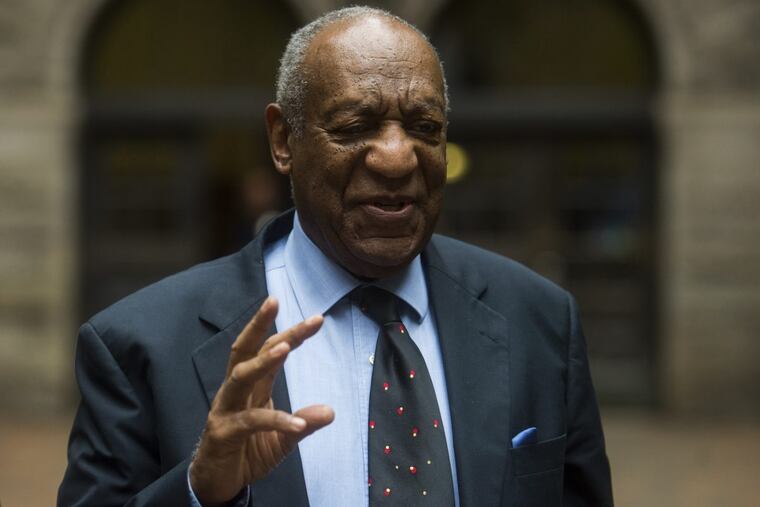Cosby judge: Psychologist can testify about why Constand may have waited
An expert witness can testify at Bill Cosby's sexual assault trial that his accuser's year-long delay in reporting the incident to police is typical of sex assault victims, a judge ruled Thursday.

A psychologist can testify at Bill Cosby's trial that his accuser's yearlong delay in reporting the incident to police is typical of sex-assault victims, a judge ruled Thursday.
Cosby's lawyers had asked Judge Steven T. O'Neill to block Veronique Valliere from testifying in the trial, set to begin next week in Norristown.
O'Neill ruled that the testimony would be permitted as long as Valliere qualified as an expert witness.
The ruling was one of several issues under consideration during the final pretrial hearing Thursday.
"We are ready to start this case on Monday," O'Neill said at the end of the day, much of which unfolded in a room closed to reporters and the public.
Cosby, 79, is charged with aggravated indecent assault for allegedly drugging and molesting former Temple University employee Andrea Constand at his home in Cheltenham in 2004. He was not in court Thursday.
Cosby's lawyers asked O'Neill to exclude Valliere because Pennsylvania law did not permit expert testimony at sexual-assault trials until 2012, about eight years after Constand claims she was attacked.
We're dealing with a scenario in which there has been a delayed prosecutorial action," said Angela Agrusa, one of Cosby's lawyers.
Prosecutors argued that defense lawyers simply did not want jurors to hear that some of Constand's behaviors after the alleged assault — such as continuing to stay in touch with Cosby and waiting a year before contacting police — are not signs that she lacks credibility.
"These are typical behaviors of a sex-assault victim," Assistant District Attorney Kristen Feden said. "They don't want an expert to testify to that."
O'Neill ruled that it was appropriate to retroactively apply the 2012 law.
The judge also appeared likely to permit Timothy Rohrig, a toxicologist, to testify about the impact of Quaaludes on people who take them.
Constand alleges that Cosby gave her pills that made her woozy and unable to move or consent. Prosecutors say it is not clear whether those pills were Quaaludes, the once-popular party drug. Cosby initially told Constand they were herbal pills, and later told her mother it was Benadryl, according to police reports,
But prosecutors will also present Cosby's own 2005 deposition testimony, in which he admitted obtaining Quaaludes in years past to seduce women.
Given that evidence, O'Neill said, it may be appropriate for jurors to hear explanations about Quaaludes such as, "What is it? What's its name? What's it do? What's its effects?"
Agrusa suggested that Quaaludes were not manufactured anymore by the time of the alleged assault against Constand. But District Attorney Kevin R. Steele countered that Montgomery County had a large drug case in 2002 involving the illegal sale of Quaaludes.
Cosby's lawyers also asked O'Neill on Thursday to refrain from referring to Constand as "the victim" during the trial, instead referring to her as a complainant or simply using her name. O'Neill said he would call her "the alleged victim," and said he would not place limitations on how lawyers could refer to her during their own arguments.
O'Neill said he would hear arguments and make other motions Thursday in his chambers, so that new issues not already made public or covered by the media would remain private. He said he was concerned that jurors, selected in Pittsburgh last week but not yet under oath or sequestration, could see news coverage of the case.
"I am at this stage only concerned with a fair and impartial trial," he said.
Jurors are scheduled to be bused from Pittsburgh to Montgomery County on Sunday for the trial. They will stay at an undisclosed hotel. Reporters who follow and attempt to contact jurors during the trial, O'Neill warned Thursday, would face "serious repercussions."